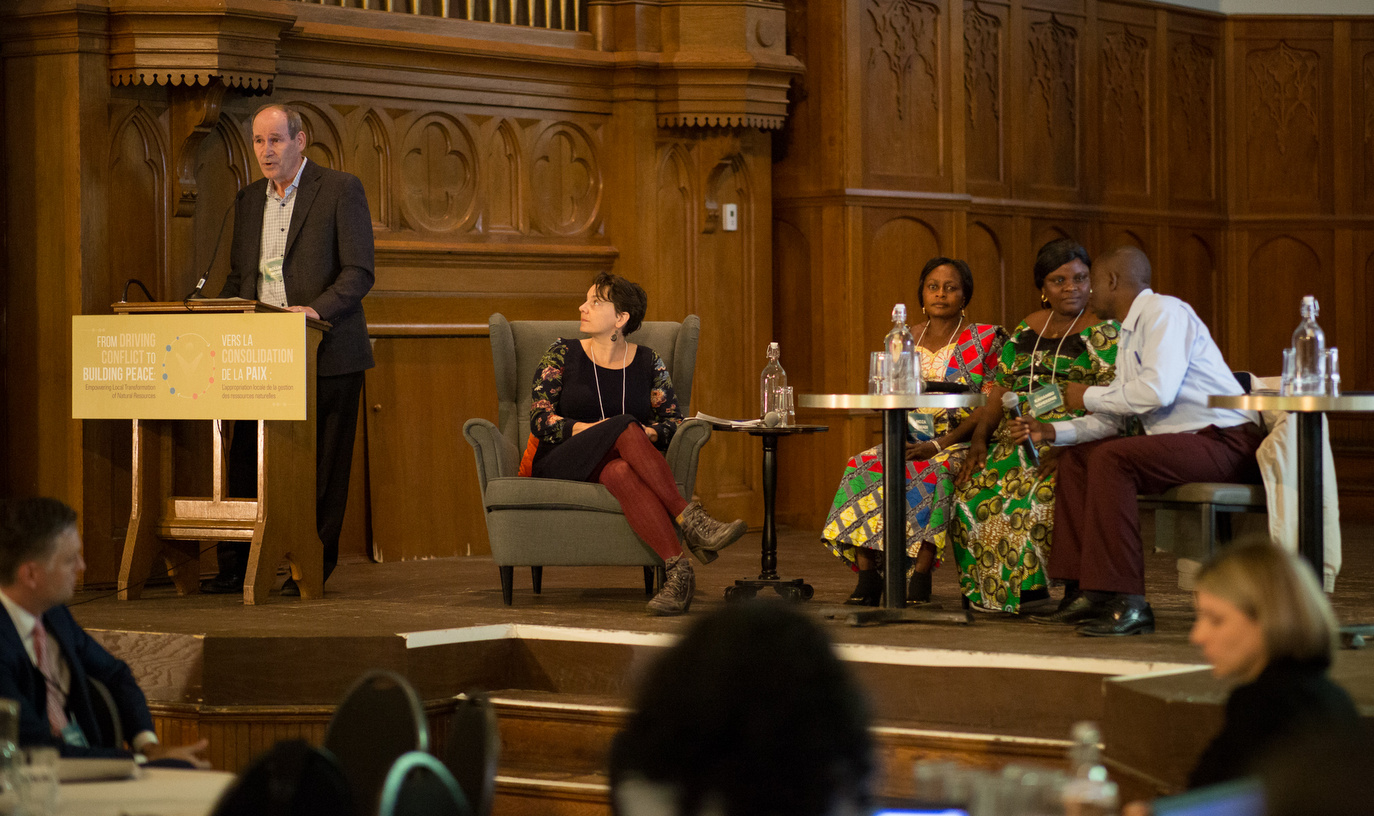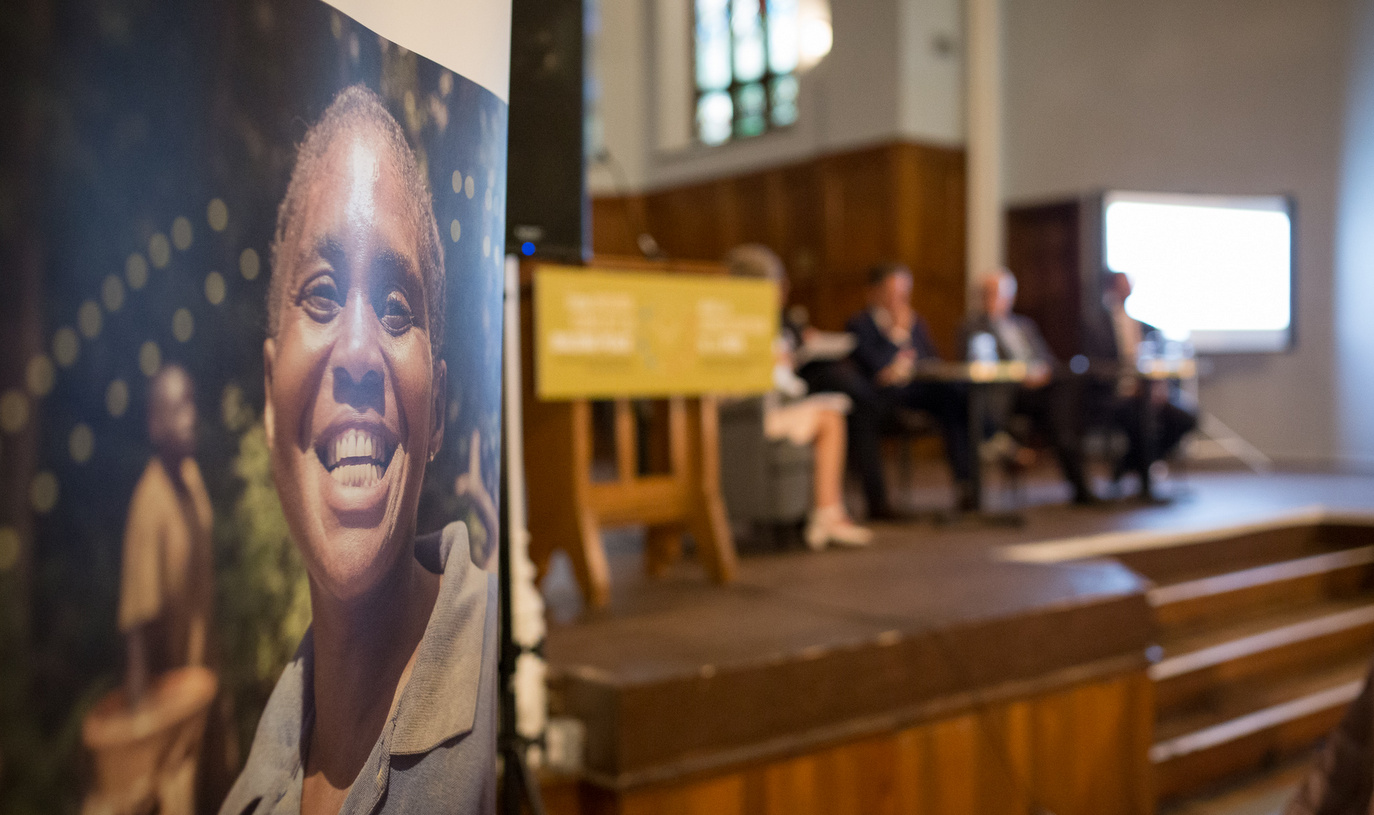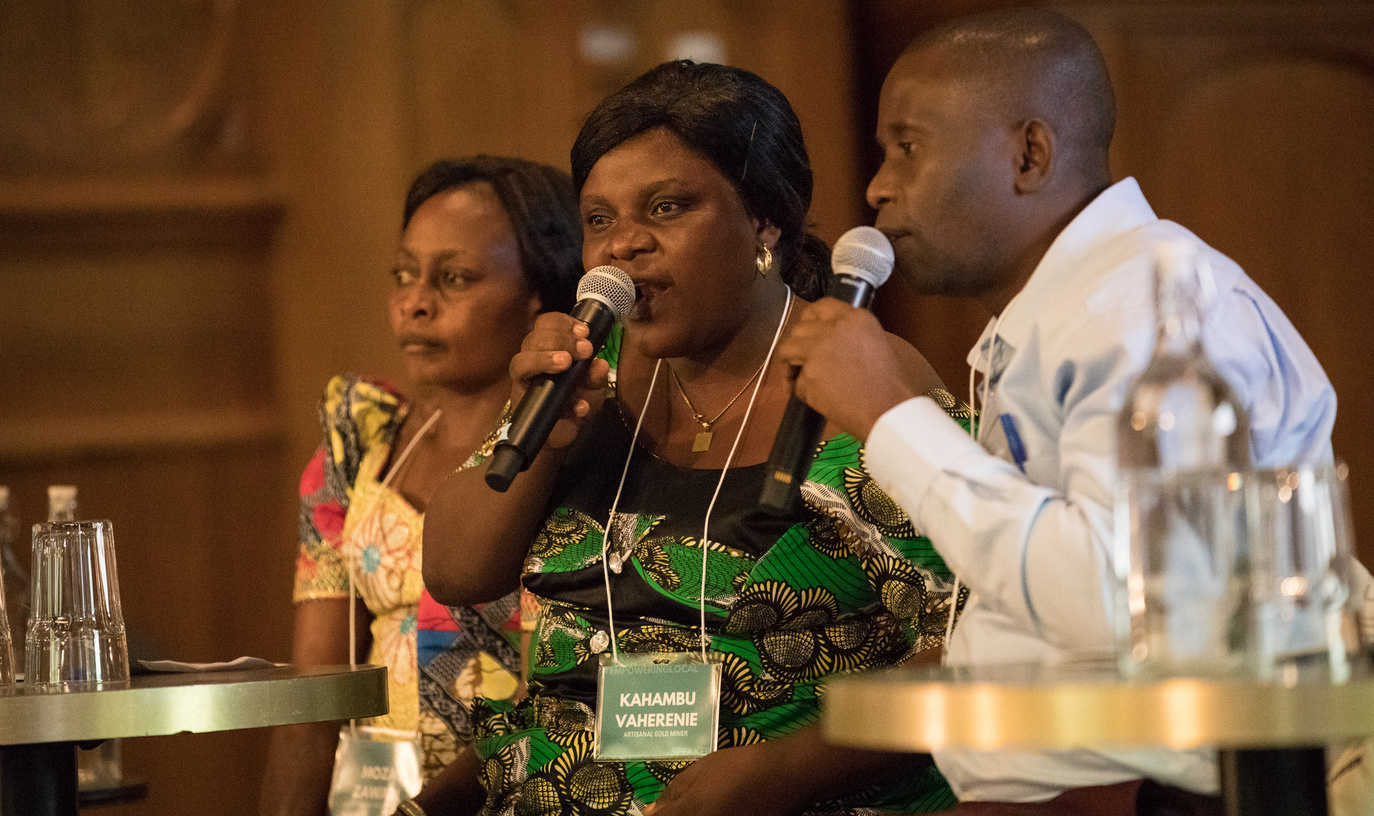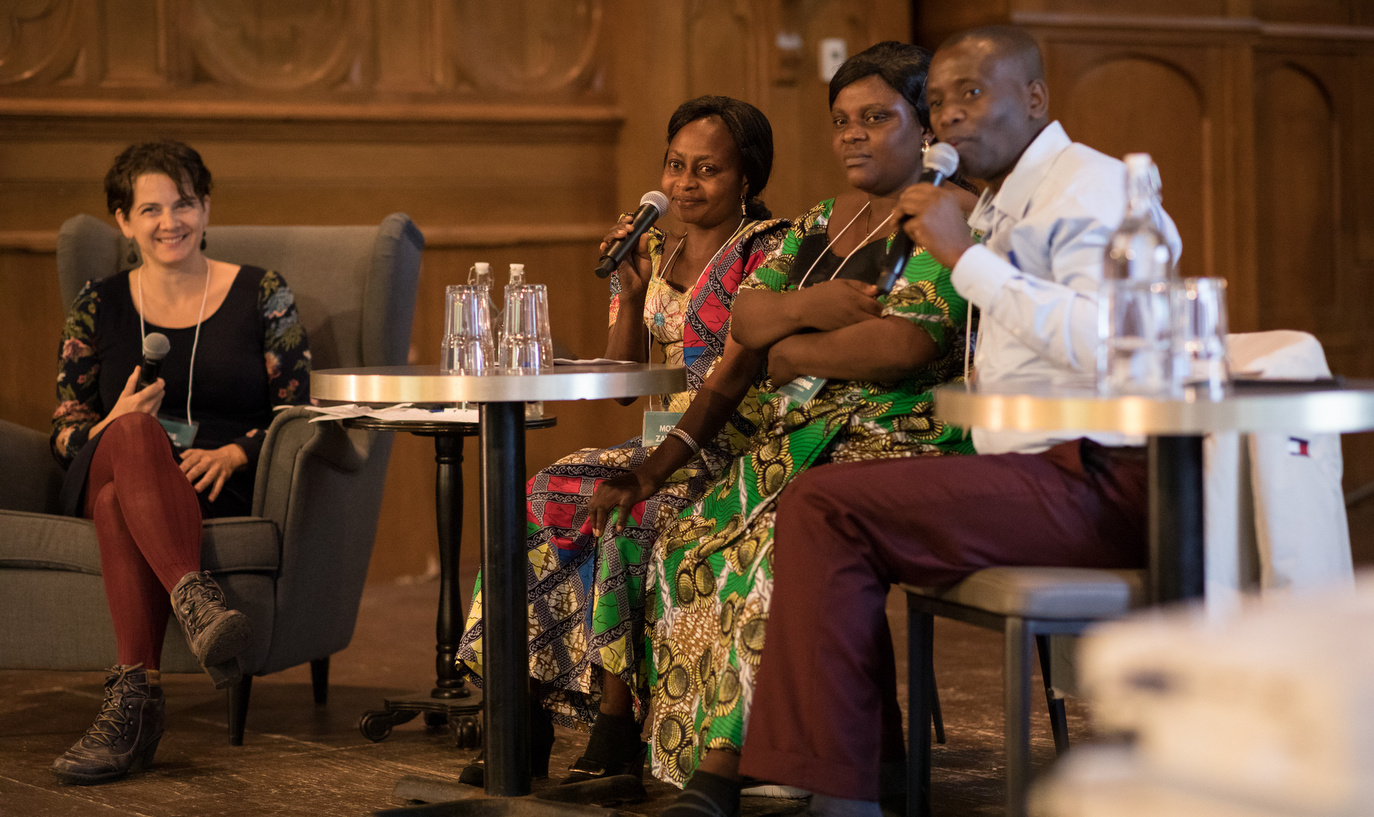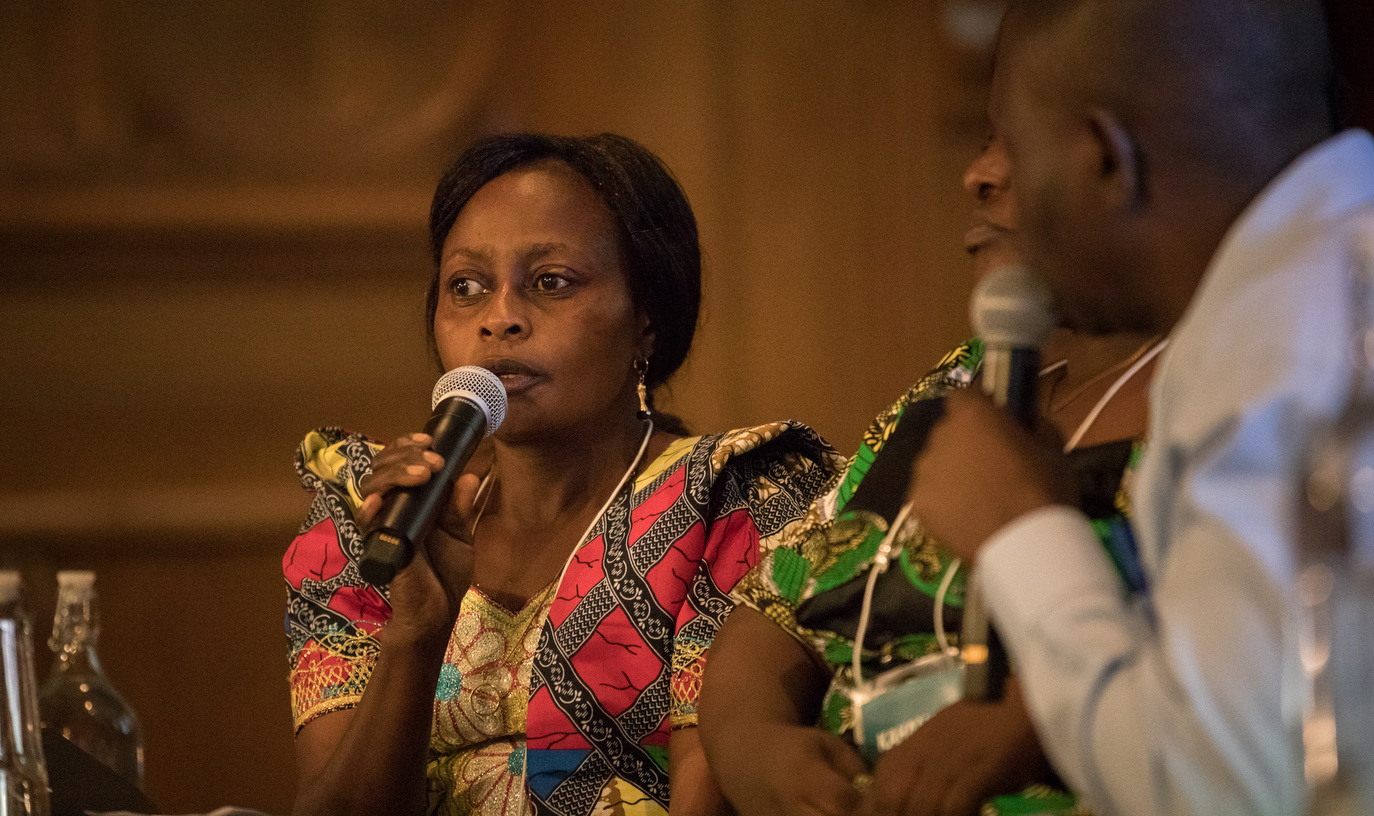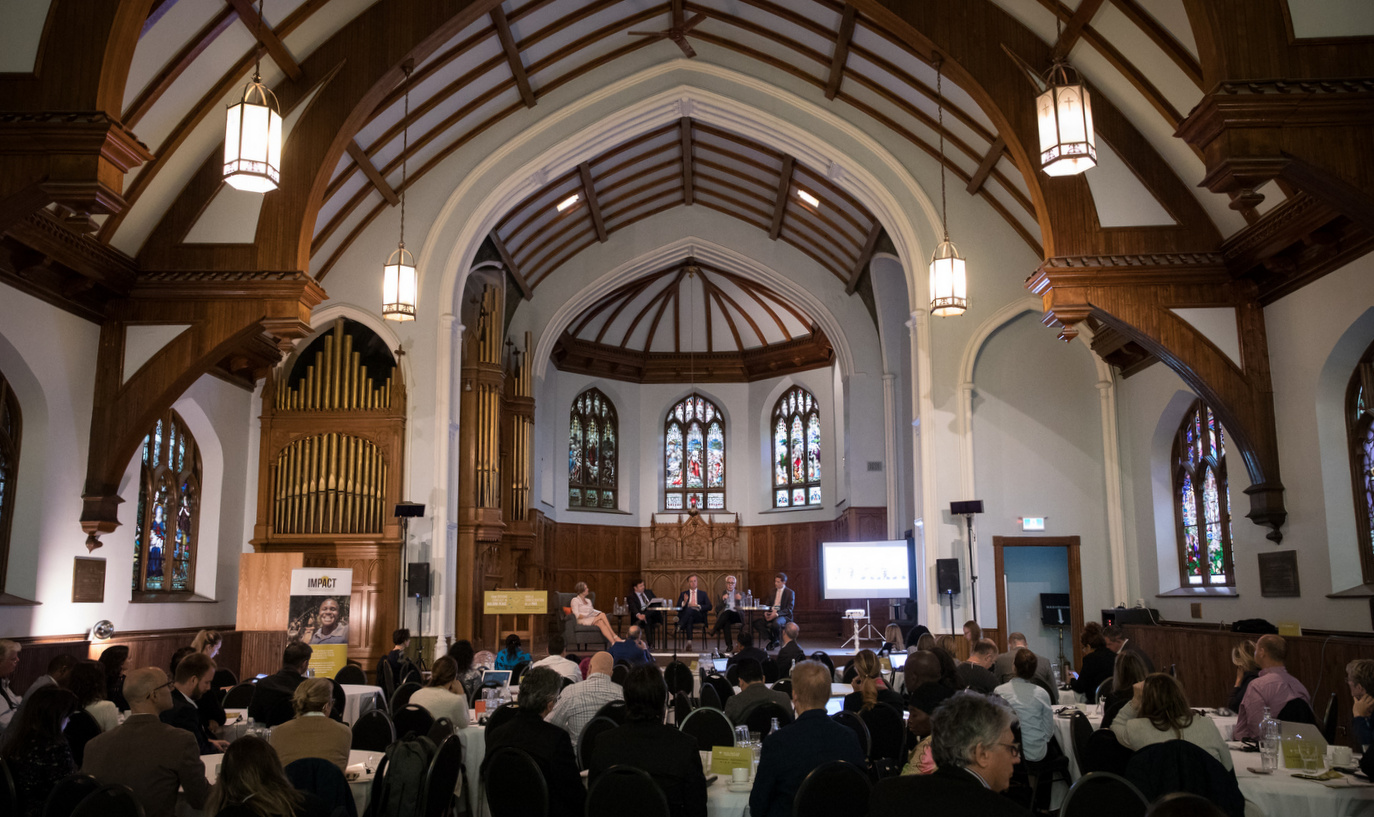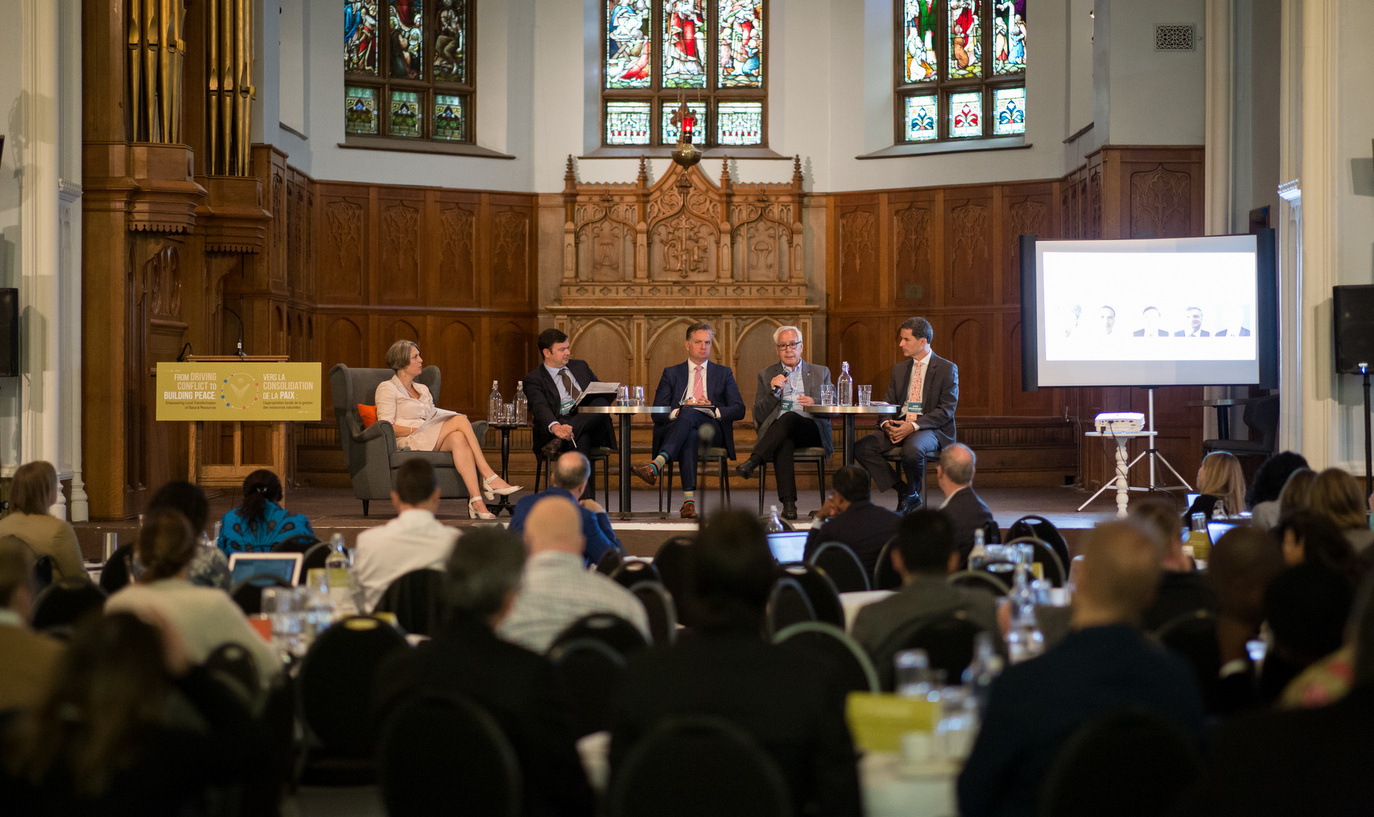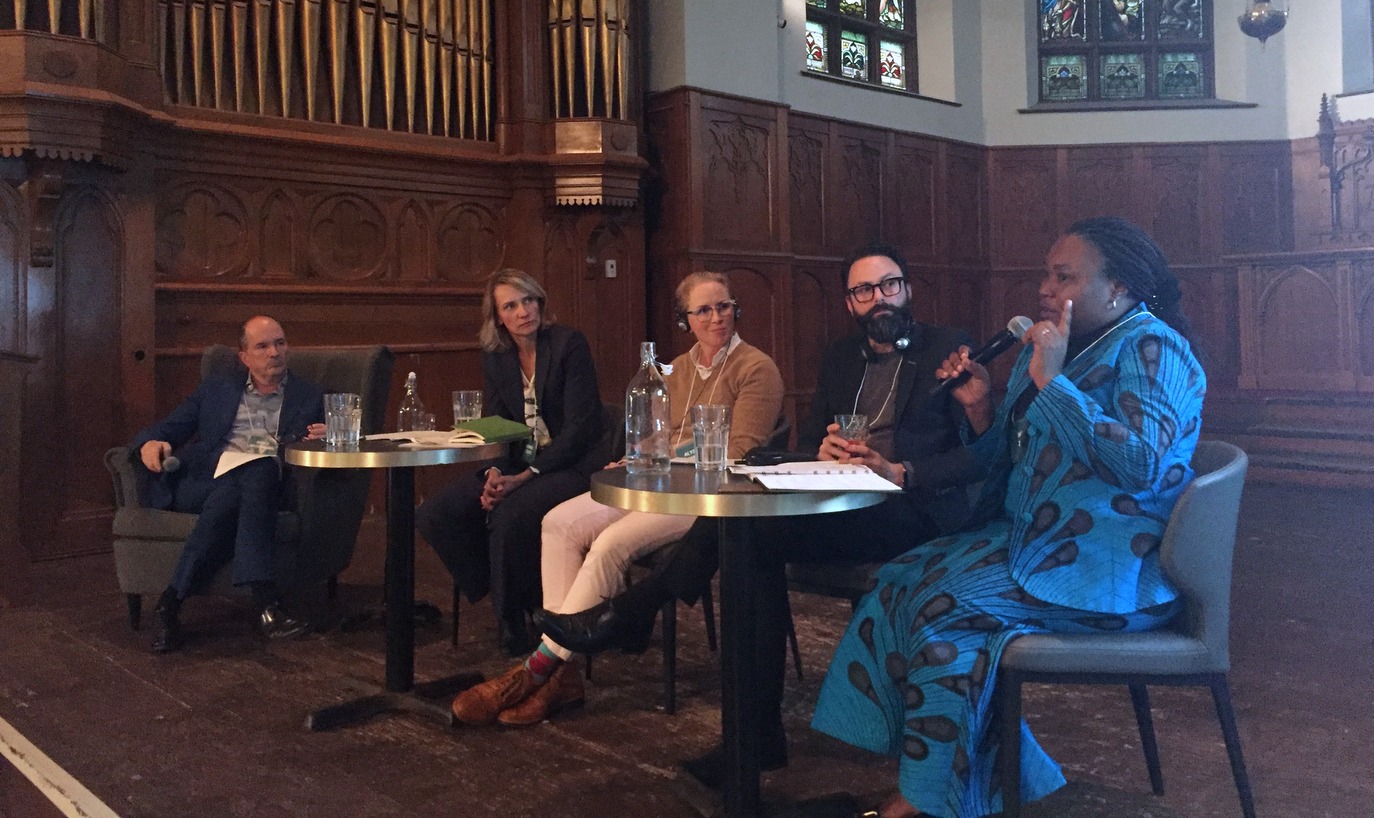In September, IMPACT brought together over 100 stakeholders for a one-day conference to discuss natural resources in areas where security and human rights are at risk. The conversation explored opportunities to support local communities to transform how their natural resources are being managed to improve security, development, and equality.
Canadian and international experts from governments, private sector, civil society, and think tanks shared their thoughts during the day with a focus on innovative responses to improve the governance of natural resources such as minerals, land, water, and wildlife.
Speakers included Google, Fair Trade Jewellery Co., United Nations Environment Programme, the Canadian government and more, with discussion about how policy frameworks, multi-stakeholder collaboration, supply chain transparency, and responsible sourcing can support local communities. However, the day emphasized the need to work from the ground-up, listening and engaging directly with artisanal mining communities and grassroots organizations at the local level.
The conference had a unique opportunity to hear directly from two women artisanal gold miners from the Democratic Republic of Congo. Kahambu Vaherenie and Moza Zawadi shared their experience as women gold miners and the importance of mining to their income and livelihoods.
Read about the conference speakers on the conference website.
Read about the conference speakers on the conference website.
Check out few highlights and all the tweets below!
![]()
Kahambu Vaherenie: Previously, we weren’t allowed to sell the gold ourselves. But men & women both went to training and the men saw the importance of supporting the women towards #equality and contribution women could make to the households.
Moza Zawadi: Today women have been supported in opening savings accounts and allows to save and think for our future.
Paulo de Sa: Mining Ministers used to be like sales people selling the potential of their country intl, but companies would arrive & find a different story. Now role of mining officials is also to focus internally and work with local communities.
The government of Canada on regulatory frameworks: The best way to implement policy is to listen to the local actors involved
Mora Johnson: Need to move away from naming and shaming the downstream actors. It shows that you can identify and work collaboratively to address the issues & support development approach.
Daniel Eizenga: Communities in Sahel are incredibly resilient but they live in difficult conditions & why we need to address issues like climate change.
Gisele Eva Cote: Women in Mambasa DRC are leaders in protection of the environment in artisanal mine sites. They have tree nurseries to reforest, raise awareness about mercury use.
Bruce Calder from Claigan Environmental: We need to follow the money through supply chain. Turn over the rocks you find the creepy crawlers!
Patience Singo: major challenge is that artisanal mining operates in the informal space, but upstream requires that gold is coming from a place that is legal
Joanne Lebert: We need to be innovative as we’re operating in a war economy. Transportation, logistics, security costs are high. Sustainability of the projects rests on a business model which works in a conflict environment.
![]()

